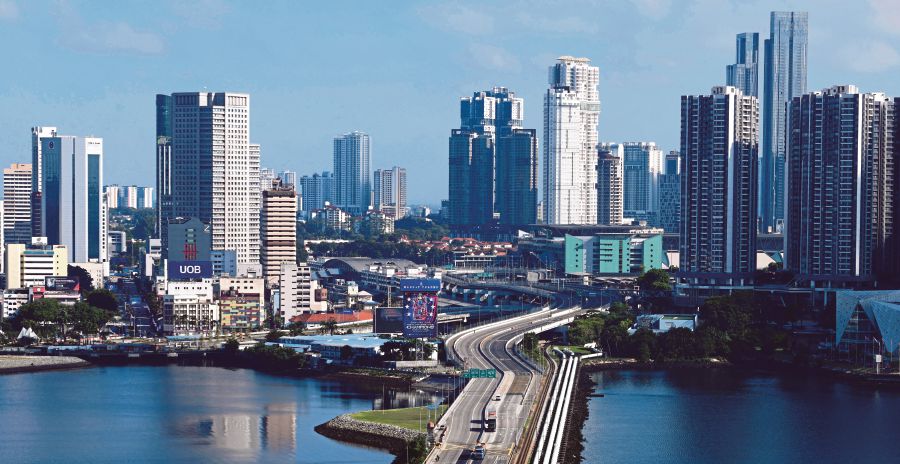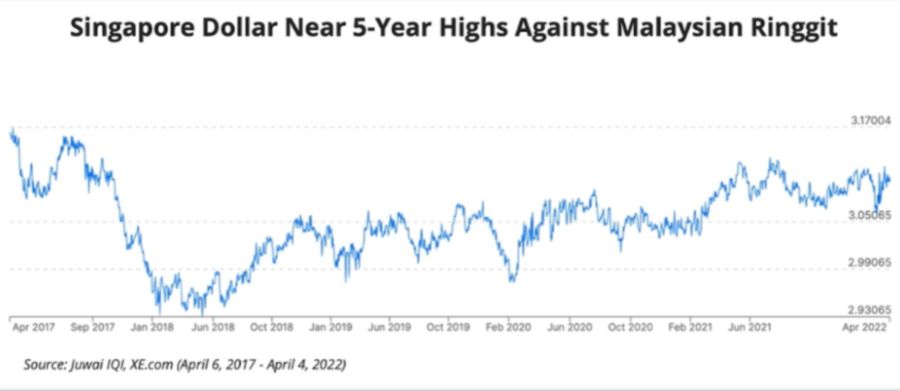
Singapore's investment in Malaysia's real estate sector, particularly in Johor and Kuala Lumpur, is bound to increase with the reopening of the border crossing.
Kashif Ansari, co-founder and chief executive officer of Juwai IQI Group, predicts that Malaysian expats in Singapore and Singapore nationals will increase their property purchases in 2022.
While it is difficult to predict the exact magnitude of growth, Kashif believes that a 40 per cent increase in investment by expats and Singaporeans by the end of the year, compared to 2021, is possible.
He believes that investment will continue to rise in 2023, possibly reaching pre-pandemic levels.
Buyers in Singapore, he claimed, are looking for alternatives to the extremely expensive property in their own market.
"The pandemic fueled housing demand and reduced the supply of housing on the market in Singapore. The result has been new highs for private residential real estate prices. Overall Singapore's private home prices rose by 10.6 per cent in 2021. Singapore hasn't seen such fast price growth since 2010. Meanwhile, the number of transactions increased by 68 per cent compared to 2020," Kashif said.
The Johor Causeway and Linkedua Highway, which had been deserted during the implementation of the movement control order, came alive again after two years on April 1.
Kashif believes that reopening the border will result in a complete resumption of pre-pandemic trade and travel between the countries.
Singapore is Malaysia's largest source of foreign direct investment, accounting for 22 per cent of Malaysia's total FDI stock in 2020. Singapore also benefits from and receives the greatest amount of Malaysian direct investment of any country. Malaysian investment in Singapore reached RM110.38 billion in 2020, accounting for about 21 per cent of total investment.
"By enabling the cross-border lifestyle that so many took for granted before 2020, it will also once again make it possible for Malaysians to seek opportunities in Singapore and for Singaporeans to seek opportunities in Malaysia as well," he said.
According to Kashif, the reopening heralds the start of a new era of cross-border real estate investment in both directions.
Singaporeans looking to invest in Malaysia in 2022 will be influenced by the strong Singaporean dollar and the perception that the Malaysian market is nearing the bottom of the cycle, with prices and activity expected to rise in the coming years.
Property buyers will seek alternatives in Malaysia as a result of Singapore's high property prices.
Kashif believes that reopening the border will result in a complete resumption of pre-pandemic trade and travel between the countries.
Singapore is Malaysia's largest source of foreign direct investment, accounting for 22 per cent of Malaysia's total FDI stock in 2020. Singapore also benefits from and receives the greatest amount of Malaysian direct investment of any country. Malaysian investment in Singapore reached RM110.38 billion in 2020, accounting for about 21 per cent of total investment.
"By enabling the cross-border lifestyle that so many took for granted before 2020, it will also once again make it possible for Malaysians to seek opportunities in Singapore and for Singaporeans to seek opportunities in Malaysia as well," he said.
According to Kashif, the reopening heralds the start of a new era of cross-border real estate investment in both directions.
Singaporeans looking to invest in Malaysia in 2022 will be influenced by the strong Singaporean dollar and the perception that the Malaysian market is nearing the bottom of the cycle, with prices and activity expected to rise in the coming years.
Property buyers will seek alternatives in Malaysia as a result of Singapore's high property prices.

The Singapore Dollar is trading near a five-year high against the Malaysian Ringgit, at RM3.10 to S$1.
According to Kashif, this is significantly higher than it was at the start of the pandemic in February 2020, when the Malaysian ringgit fell to RM2.98.
The exchange rate represents a four per cent to five per cent increase in purchasing power for a buyer holding Singapore dollars.
"Enhancing the buying power of purchasers holding Singapore dollars, the Malaysian real estate market offers excellent affordability at the moment. While Malaysia's real estate market did surprisingly well during the pandemic, Ministry of Finance data shows that transactions were nonetheless lower than in prior years," Kashif said.
Total residential transaction value fell more than 26 per cent in the first half of 2020 (H1 2020) compared to the same period in 2019.
The total transaction value was still lower in H1 2021 than it was in 2019.
According to Kashif, despite a 1.2 per cent drop in Malaysian home prices in the second quarter of 2021, they remained in line with 2019 levels.
"Malaysian home prices have remained in the same band since about 2019, but fewer sales and less new construction, combined with rising economic optimism in the country, suggest that the property market could be at the beginning of a new up cycle. As employment, household income, and GDP all increase in 2022 and beyond, we expect the home market to also perform well," he said.


